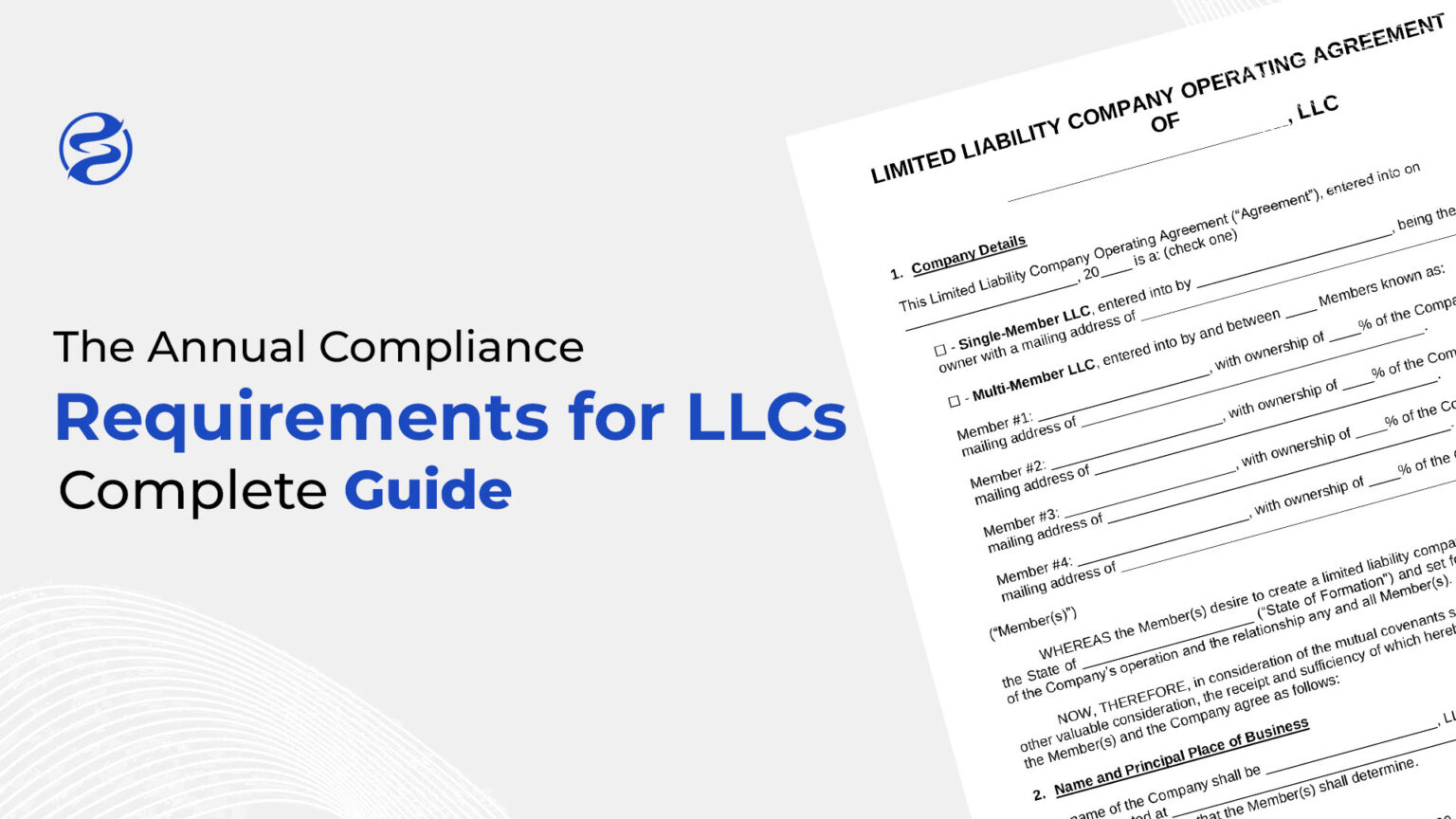LLCs (Limited Liability Companies) in the United States must meet certain annual compliance requirements to keep their legal status and continue operating smoothly. These requirements are set by each state and usually include filing an annual report, paying state fees and maintaining a registered agent.
By following these rules, LLCs keep their business information up to date, show accountability to clients and partners, and avoid problems such as fines, loss of good standing, or even being dissolved by the state.
1. Filing the Annual Report
Most states require LLCs to file an annual (or sometimes biennial) report. This report updates the state with your LLC’s current information, such as:
- Legal name of the LLC
- Business address
- Registered agent’s name and address
- Names and addresses of LLC members or managers
The purpose is to keep state records accurate and ensure the public can find up-to-date information about your business. The deadline, fees and required details vary by state.
For Example, A Florida LLC must file its annual report by May 1 each year through the SunBiz website. Missing the deadline can result in a $400 late fee, and continued non-compliance could lead to the company being dissolved by the state. In North Dakota, the annual report is due by November 15, with a $50 fee that increases to $100 if late.
2. Paying State Fees
Many states charge LLCs an annual franchise tax or similar fee for the privilege of operating in the state. This tax is separate from income tax and is owed regardless of whether the LLC made a profit.
- In California, Every LLC must pay a minimum $800 franchise tax each year, even if the business made no income.
- Delaware LLCs pay a $300 annual franchise tax.
- New York LLCs pay an annual filing fee based on their gross income in the state, starting at $25 and increasing as income grows.
3. Maintaining a Registered Agent
Every LLC must have a registered agent with a physical address in the state of formation. The registered agent receives official documents and legal notices on behalf of the LLC, ensuring the business can be contacted by the state or in legal matters.
- The registered agent must be available during business hours.
- Some states have specific rules about who can serve as a registered agent
For Example, A Wyoming LLC uses a registered agent service to meet this requirement, ensuring all legal documents are received and handled properly.
4. Updating the Operating Agreement
While not always required by law, reviewing and updating the LLC’s operating agreement each year is a good practice. This document outlines how the LLC is managed and how profits and responsibilities are shared. Keeping it current helps prevent disputes and clarifies any changes in ownership or management. For instance If a new member joins an LLC or an existing member leaves, updating the operating agreement ensures everyone’s roles and rights are clear.
5. Renewing Business Licenses and Permits
Depending on the industry and location, LLCs may need to renew local, state, or federal business licenses and permits annually. Failing to renew can result in fines or suspension of business activities.
6. Filing Federal, State, and Local Taxes
LLCs must file annual federal tax returns and, in many cases, state or local tax returns as well. Even if the LLC has no income, certain forms may still be required to avoid penalties.
7. Keeping Accurate Business Records
Maintaining up-to-date records of all business activities, financial transactions, and compliance filings is essential. These records are necessary for audits, legal matters, or when applying for loans.
For Example: An LLC that keeps organized records of annual reports, tax filings, and meeting minutes will have an easier time providing information if requested by the IRS or state authorities.



